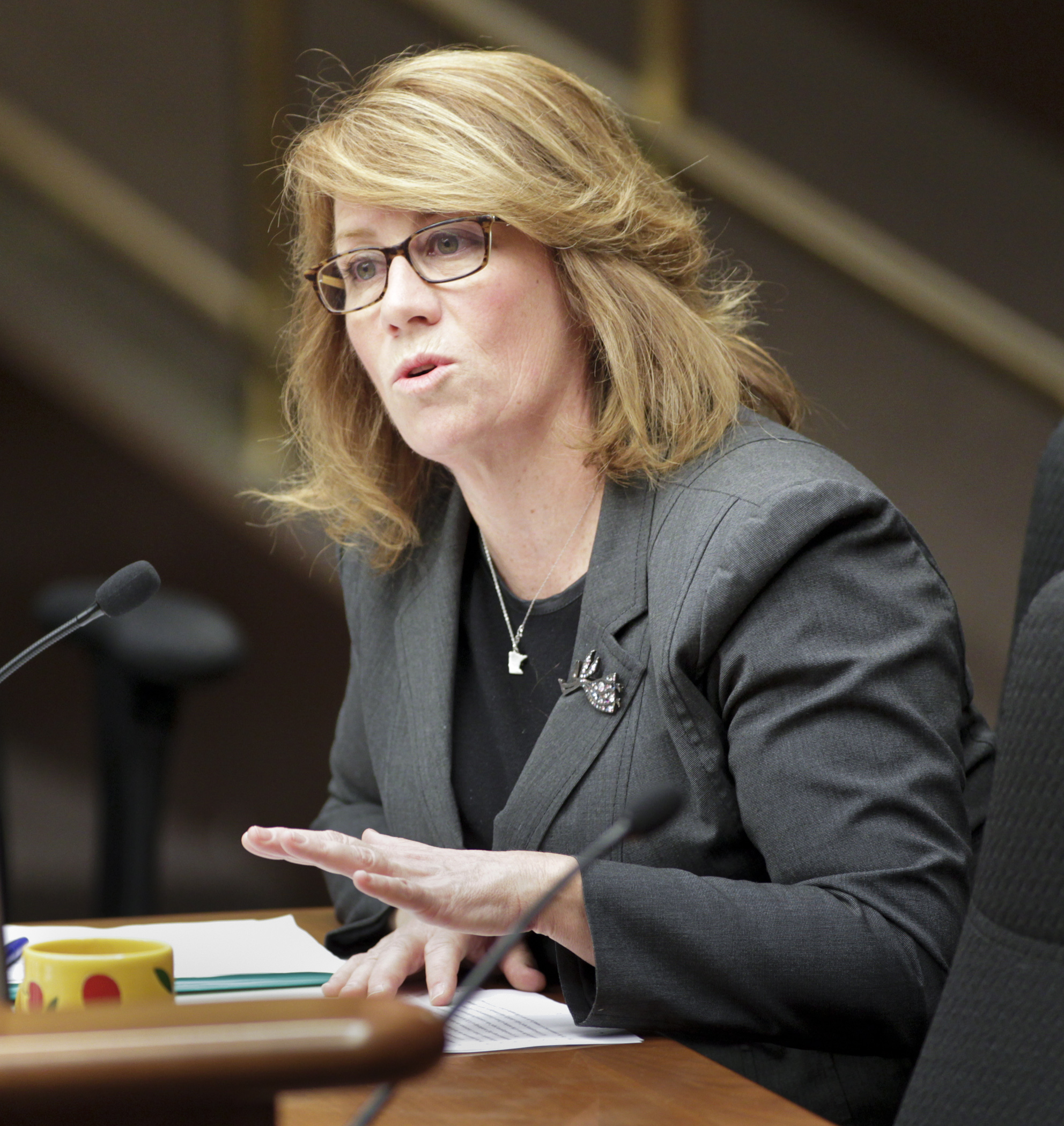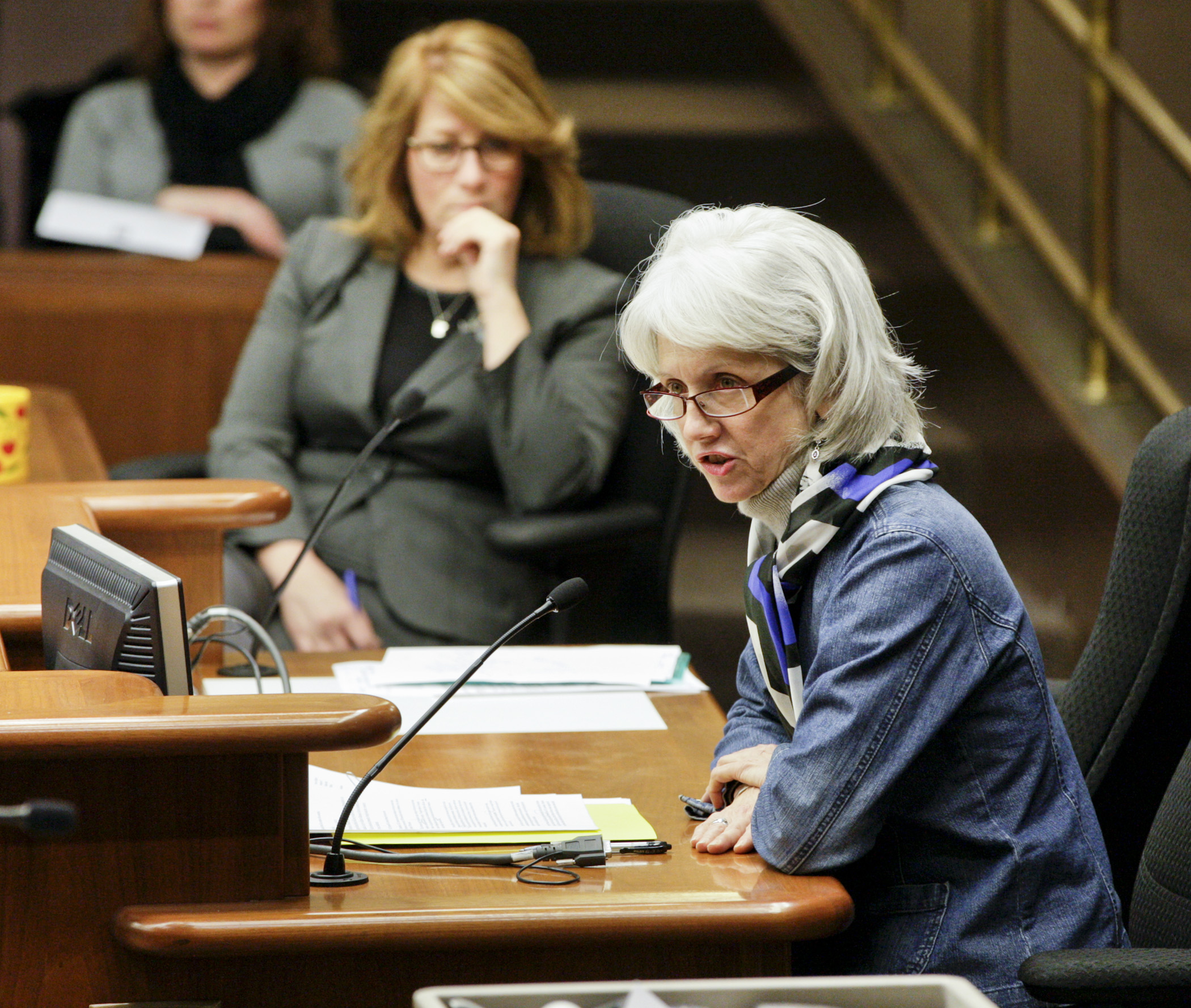Key committee rejects universal, all-day preschool bill

A bill that would give school districts the opportunity to offer all-day preschool to 4-year-olds stalled Tuesday in the House Education Innovation Policy Committee.
Rep. Erin Murphy (DFL-St. Paul) began her push for universal, voluntary pre-kindergarten in the public schools during the 2014 legislative session, saying Minnesotans are frustrated with the Legislature’s delay in fully investing in early learning opportunities for all children. This year, the proposal came forth in the form of HF46.
It would allow eligibility for children who are 4 years old on Sept. 1 and not enrolled in kindergarten to participate in a universal, all-day preschool program run by public schools.
After several hours of testimony on the bill, including an initial hearing last week, the committee voted 11-8 along party lines to reject the bill.
A companion, SF6, sponsored by Sen. John Hoffman (DFL-Champlin), was tabled Jan. 21 by the Senate E-12 Budget Division.
Committee Chair Rep. Sondra Erickson (R-Princeton) reminded Murphy and committee members that HF844 – which contains Gov. Mark Dayton’s K-12 education budget proposal in bill form – includes a version of universal, voluntary preschool similar to Murphy’s bill and that it will receive continued discussion in the coming weeks.
Several childcare providers strongly oppose
Although Murphy’s bill has support from officials in St. Paul and Anoka-Hennepin school districts, several child care organizations and independent child care providers testified in opposition.
 Sandy Pursley, interim executive director of the Minnesota Licensed Family Child Care Association, testifies on HF46, sponsored by Rep. Erin Murphy, left, regarding universal all-day preschool before the House Education Innovation Policy Committee Feb. 24. Photo by Paul Battaglia
Sandy Pursley, interim executive director of the Minnesota Licensed Family Child Care Association, testifies on HF46, sponsored by Rep. Erin Murphy, left, regarding universal all-day preschool before the House Education Innovation Policy Committee Feb. 24. Photo by Paul BattagliaCritics argued that its scope is too broad and that expansion of pre-school to the public schools would price many of the nearly 10,000 private, for-profit and nonprofit child care providers across the state out of business.
“I believe that as parents, educators, taxpayers and legislators, our responsibility is to allocate our resources in a thoughtful way which maximizes the benefit to those served,” said Steve Williams, who runs an eight-site private child care business with his wife in the Twin Cities. “We can best do this by utilizing a proven delivery system already in place and focusing any new resources on tuition subsidies and scholarships.”
The proposed legislation is intended to work in tandem with existing early learning scholarships for children from low-income families to attend myriad pre-school programs already in the marketplace, Murphy said. The universal pre-k model would serve a complementary role by allowing an eligible child to choose to enroll in a program offered by a school district or to apply for an early learning scholarship, she added.
Early learning scholarships, which have been in existence since 2013, specifically target and serve children from low-income families.
Debate over targeted vs. broad-base support
Several Republicans who voted against the bill expressed their support for expansion of existing early learning scholarship programs as an alternative to building preschool into public elementary school systems.
“We need to target our finances where they are needed most,” said Rep. Peggy Bennett (R-Albert Lea), a recently-retired first-grade teacher. “If we offer universal preschool that takes away from our ability to prioritize our at-risk students.”
[MORE: Listen to full audio of the hearing]
Murphy said many 4-year-olds who would benefit from universal pre-school come from families that might not qualify for early learning scholarships, but still struggle to provide such opportunities. She also emphasized the need to develop a learning environment where at-risk children can learn and grow with children of all backgrounds and income levels.
Parents and child care providers who testified in support of the bill said they were once skeptical of the all-day model in a primary school setting, but changed their opinion after seeing the results in more limited settings, such as the all-day, preschool program at Wellstone Elementary in St. Paul.
But others said that such a movement is in direct conflict with established research that states that early play-based environments are better for preschool-aged children than are structured learning environments.
“Universal preschool does not provide the answer to which environment prepares children best for kindergarten,” said Sandy Pursley, interim executive director of the Minnesota Licensed Family Child Care Association. “The answer is families."
Related Articles
Search Session Daily
Advanced Search OptionsPriority Dailies
Ways and Means Committee OKs proposed $512 million supplemental budget on party-line vote
By Mike Cook Meeting more needs or fiscal irresponsibility is one way to sum up the differences among the two parties on a supplemental spending package a year after a $72 billion state budg...
Meeting more needs or fiscal irresponsibility is one way to sum up the differences among the two parties on a supplemental spending package a year after a $72 billion state budg...
Minnesota’s projected budget surplus balloons to $3.7 billion, but fiscal pressure still looms
By Rob Hubbard Just as Minnesota has experienced a warmer winter than usual, so has the state’s budget outlook warmed over the past few months.
On Thursday, Minnesota Management and Budget...
Just as Minnesota has experienced a warmer winter than usual, so has the state’s budget outlook warmed over the past few months.
On Thursday, Minnesota Management and Budget...